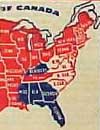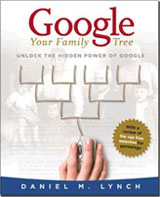|
|
|
|

1940 Census
For many genealogists, the release of the 1940 Census on Monday, April 2, 2012, was the most recent milestone event in the world of online genealogy research. The project saw some of the leading organizations, both commercial and nonprofit, come together with the community and coordinate with government agencies to ultimately open the records to all for some amazing historical research. We have hopes to exceed that excitement for the 1950 census.

  Questions Asked on the 1940 Census
Questions Asked on the 1940 Census
The Bureau of the Census (Department of Commerce) provided standardized forms in 1940 for all Enumerators as in previous years. The standard Population Schedule had 34 questions and more than a dozen Supplemental Questions asked only for those persons who were enumerated on specified lines. This was the means used to ensure a random nature in obtaining supplemental information. Learn more about Questions Asked on the 1940 Census.


 1940 Map of the United States
1940 Map of the United States
By 1940, the outline of the United States and the individual borders for the 48 contiguous states had become familiar to many, both in America and elsewhere throughout the world. The American Flag would display 48 stars, one for each state, for more than four decades. Those researching their family history are encouraged to understand the geographic area where their ancestors lived. This is especially true if your ancestors lived in the northeast or in border towns. It's possible that a move just a few miles away could result in a new state of residence. View 1940 Map of the U.S..


 What were things like in 1940?
What were things like in 1940?
On April 7, 1940, just days after the official date for the 1940 Census enumeration, Booker T. Washington became the first African American to appear on a United States Postage Stamp. At the time, the domestic letter rate was just 3-cents per ounce. The World was also at war in 1940, but it would be more than eighteen months before the United States would enter World War II following the surprise attack on Pearl Harbor by the Japanese. By the time this decade drew to a close the war was over, but the entire world learned of unspeakable war crimes that would forever change the world.
Learn more about the history of 1940.

|
|






